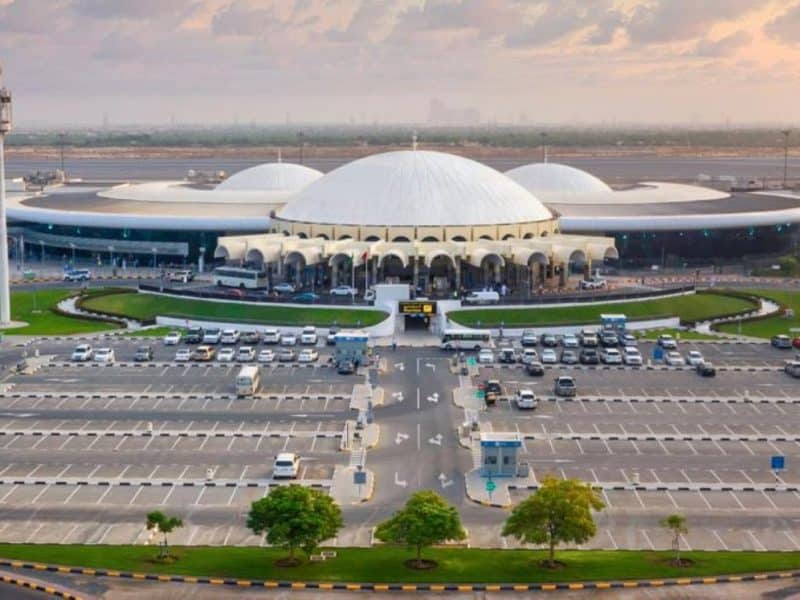It has been a decade-long party for the investment banks.” The prolonged bullish attitude coupled with the relative inexperience of young bankers with volatility, causes Arif Naqvi, CEO of Abraaj Capital, to fear that markets “may experience knee jerk reactions”. Finding anyone to express fear or pessimism about markets in the region is a difficult task. Even last year, when most of the world’s worst performing markets were in the Middle East, the accepted analysis was that equity markets were undergoing a ‘correction’. Now, the fact that Naqvi concedes that something may go wrong exemplifies the uncertainty looming over global capital markets.
To catch a whiff of this fear of uncertainty and confusion, just take a quick scan of newspaper headlines over the past few weeks. While volatility in indices is nothing new, the underlying factor contributing to the current situation is a new species. According to the reports, markets are up one day despite concerns of a global credit crunch, or markets are down the next day due to concerns of a global credit crunch. The question on everyone’s mind in the region is: how will the global credit crunch affect markets in the Arab world?
There will certainly be casualties from this debacle.
First, a brief review of how we got here. During the housing boom in the US over the past five years and amid low interest rates, lenders relaxed criteria and consumers with poor credit ratings received loans. These loans, the subprimes, were then sliced and diced into securities (with differing risk levels) to investors. Of course, investors today do not buy and hold assets; financial structuring and engineering have created a new system where trading is ever more exotic and esoteric, and almost always involves huge amounts of leverage, or borrowed money. When times are good, profits rocket and everyone is happy. But when the perfect storm that hits markets twice a decade rages by, panic ensues. Lenders make margin calls and constrict liquidity, forcing borrowers to dump positions to remain solvent – including massive stock sell-offs.
This storm began in the US, but has been seeping through to the rest of the world. Two weeks ago, the Federal Reserve in the US had to pump in more than US$120bn in liquidity to buoy the banks; in Japan, the injection was US$10.04bn; and in Europe, a huge shot of US$130bn was needed to allay fears. Stock market performance since then has been mixed, and credit markets remain tight.
Frédéric Buzaré, the global head of fundamental equity management at Brussels-based Dexia Asset Management, doesn’t believe this is the unravelling of the global boom, but says that “there will certainly be casualties from this debacle”. He goes on to observe that it will take years for the losses to filter through “given the time delays in foreclosing on real estate”. The spate of gloom in the headlines lately mostly deals with specialist funds that had a heavy exposure to the subprime market. Buzaré advises that “investors should ignore the hedge fund headlines but watch the employment data closely”, to get a better feel for where the economy is going. It is also important to look at insurers, as they are big investors in credit and stock markets and will be under pressure, as we are seeing with local insurance companies.
In the region, stock markets appear to have weathered the storm so far, as few are directly linked to the global economy. UAE markets, however, perhaps the most liberal in terms of allowing foreign investors to hold shares, steeply declined as international investors sold positions in an effort to meet the increasing demands on their capital structure. Emaar, the region’s equity market stalwart and bellwether, has hit a 28-month low during this sell off. Earlier this week, the company disclosed that its US subsidiary would not meet its profit targets as it was because of its heavy subprime loan portfolio. Shares are now trading at US$2.72, a steep decline from the high of US$13 that it reached on April 12, 2005.
What is going on in the UAE markets is spooking some investors. Mohammed Al Ghussein, CEO of local brokerage Atlas Financial Services, tells Arabian Business that “no one is speculating anymore”. This might be a positive sign of maturity in the market, but it undoubtedly exerts severe pressure on the index and leads to the evaporation of shareholder equity. The pessimism about the future of the markets is palpable to Al Ghussein. He believes that people are “fed up” with equity markets in the region, and “looking for alternatives”. They lost trust in the market.”
While most professionals in the region do not foresee the US subprime fiasco replicating itself in property markets here, Al Ghussein thinks differently. He claims that “Amlak and Tamweel are both involved in subprime loans of their own kind, and some debtors have been having difficulty paying for the past year. A backlash could be around the corner.” This directly contradicts what Nasser Al Sheikh, chairman of the UAE-based Islamic mortgage lender Amlak Finance, said. He reassured investors that his company’s loan portfolio is based on “prime lending rather than subprime”. Yet at the same time, he warned that the credit crunch will raise the costs of bonds in the region. Although Amlak doesn’t issue bonds, it put out a US$200m Sukuk that is listed on the Dubai Financial Market (DFM) on July 21, and even though Islamic paper is structured differently than debt, the cost of capital is uniform across markets. Al Ghussein’s fears about the failure of real estate financing in the region may turn out to be prescient, and that will have enormous ramifications.
Not everyone agrees with this scenario. Saeed Mohammed Al Amiri, chairman of Sharjah Islamic Financial Services, a brokerage firm and a subsidiary of Sharjah Islamic Bank, believes that there is only a tangential correlation between international volatility and local markets. According to his analysis, the problems in UAE markets have been ongoing for the past few months, and have taken a recent hit because of Emaar’s US investments. Al Amiri views a decline in Emaar’s share price as “a good thing”. A bottoming out of shares will lure in “the big investors who were hit in the 2006 correction” and this influx of cash will make up for the recent flight of foreign capital from the region.
There is no liquidity problem in the region.
For many investors, remaining calm in the face of turmoil is difficult, and Al Amiri empathises, saying “the reaction is mostly physiological”. He is certain that the economic conditions in the region will remain robust until 2009, and reminds us that the GCC economy is not based on the financial sector and “real estate development. The economy is based on oil, and prices are expected to increase even more this year; there is no liquidity problem in the region.”
It is fair to say that the local stock market is a mixed bag at best, but what about private equity? A major factor in the recent surge of stocks globally was increased mergers and acquisitions, which in many ways was led by private equity. The freefall in credit markets has sharply raised the bar in financing huge buyouts, and that decreases activity in stock markets. Naqvi has not noticed a ripple effect into local markets and continues to be bullish. He claims that “banks are queuing up to finance” a recent deal that Abraaj closed in Turkey.
While there is more than US$150bn of unsold debt intended for buyouts, and many big firms are delaying deals, Naqvi says “emerging market debt… is holding up well”. He believes that international investors are looking at the Middle East and China for future growth, and deals will continue to be closed despite the turmoil in global markets. On the regional private equity front, Naqvi is not concerned that international volatility will seep through in the short-term, but if the market turns for the worse, he concedes that ripples may emerge.
There may be more trouble on the horizon and investors in all markets need to re-evaluate their portfolios and examine their risk ratios, but most professionals believe that this is a blip, not a trough. Dexia’s Buzaré predicts that “after an initial sell-off, which may last until the end of this summer, investors will rediscover the intrinsic qualities of the equity market”. Stocks provide the liquidity and transparency that allow investors to judge their risk and valuations with greater accuracy than bonds, and are, as Buzaré concludes “in many respects the best asset class”. The overarching mantra of the next few years may just be: ‘bonds are out, stocks are in’.








